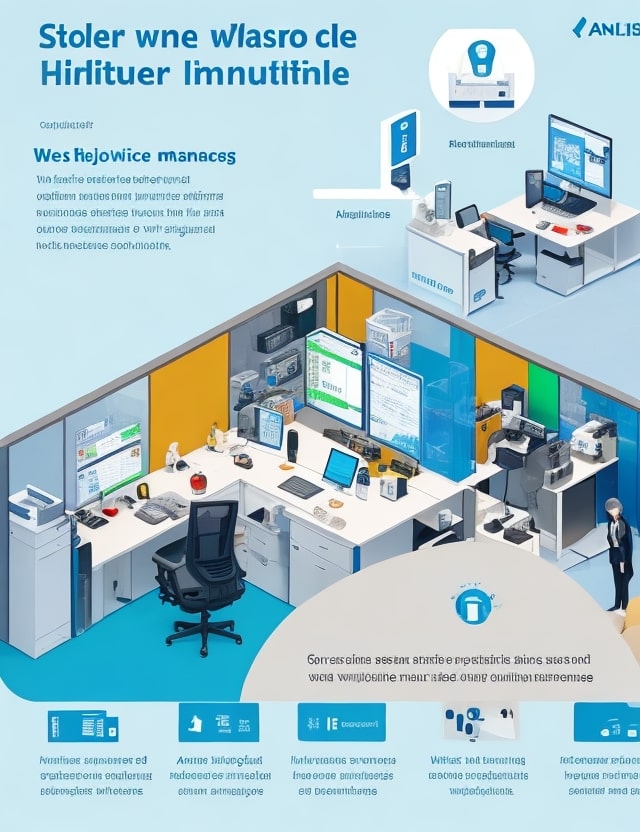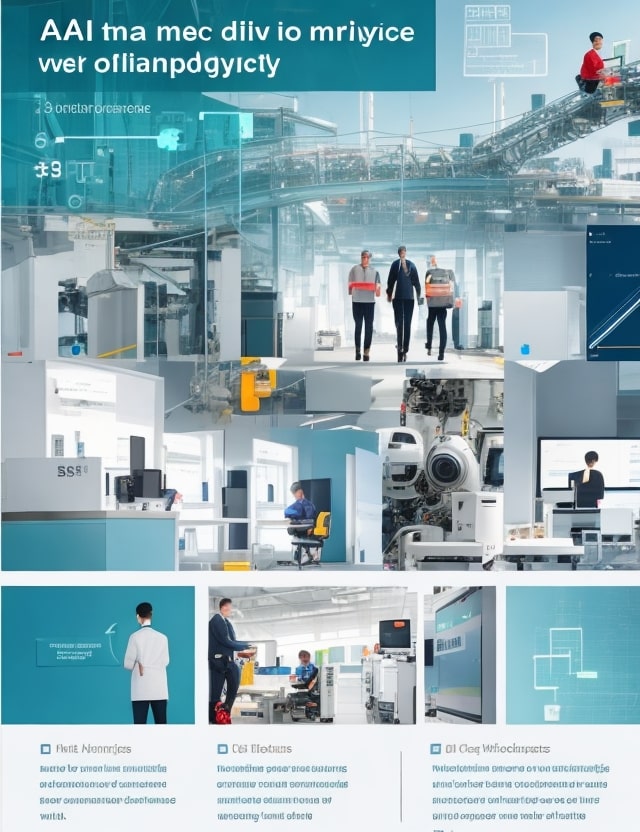Introduction:
Artificial intelligence (AI) has quickly become a disruptive technology that affects many facets of our lives. The workplace is one area where AI is having a big impact. The future of work is being shaped by automation and sophisticated technology, which are challenging the current workforce and altering established employment categories. In this article, we’ll look at how AI is affecting the workplace, its advantages and disadvantages, and how people and businesses may adjust to this rapidly evolving environment.

The Rise of AI in the Workplace: A variety of sectors and industries are integrating AI technologies like machine learning, robots, and natural language processing. Automation powered by AI is streamlining operations, increasing productivity, and increasing efficiency across industries, from manufacturing to customer service. Intelligent machines are already taking on tasks that were previously handled only by humans, causing a fundamental change in the nature of labor.
AI’s advantages in the workplace:
a. Increased Efficiency: AI can do routine, repetitive activities quickly and accurately, removing human error and cutting down on processing time. Employee concentration on higher-value tasks is facilitated by this, which boosts output and productivity.
b. Improved Decision Making: AI systems are capable of analyzing enormous volumes of data and offering insightful recommendations. AI-powered solutions can help professionals make more precise and data-driven decisions in a variety of areas, including risk assessment and predictive analytics.
c. Better consumer Experience: AI-powered chatbots and virtual assistants may respond quickly and personally to consumer inquiries, increasing customer satisfaction and cutting down on response times.
d. Workplace Safety: The use of intelligent robots in dangerous situations can reduce the risk to human workers. They can also keep an eye on working conditions to make sure safety rules are being followed.
The Evolution of Jobs:
a. Job Redefinition: Job roles are changing as routine tasks are automated. New skills must be developed by employees to support AI technologies. Workers are being reassigned to more challenging and inventive activities that call for human judgment and emotional intelligence rather than being replaced.
b. Skills in Demand: There is a rising need for knowledge in areas like data analysis, programming, and AI. People who have these talents are better equipped to negotiate the changing work environment and take advantage of the opportunities AI has to offer.
c. Collaborative Workforce: Humans and AI systems will collaborate in the workplace of the future. Employees will increasingly depend on AI-powered technologies to enhance their talents and make wise decisions, making human-AI interaction important.
d. Reskilling and Upskilling: Businesses must engage in reskilling and upskilling initiatives to provide their employees the abilities they need to work with AI technologies. In the age of AI, being relevant will need constant learning and adaptability.

Challenges and Concerns:
a. Job Displacement: The use of AI may cause some job roles to disappear. Jobs that need a lot of repetition or are vulnerable to automation run the risk of becoming outdated, which makes workers anxious and uncertain. The potential social and economic repercussions of employment loss must be addressed.
b. Ethical Considerations: AI raises moral concerns about matters like algorithmic prejudice, data privacy, and the effect on human autonomy. Employers and policymakers must oversee the development and use of AI systems.
c. Inequality: It is problematic if AI advantages are not distributed equally. Even if AI has the potential to increase productivity and open up new job opportunities, it can also worsen current inequities if only a small number of people have access to the technology and the requisite skills. To guarantee that everyone has equitable access to and opportunities, efforts should be made.
Lifelong Learning: People must embrace lifelong learning in order to adjust to the shifting nature of the labor market.
